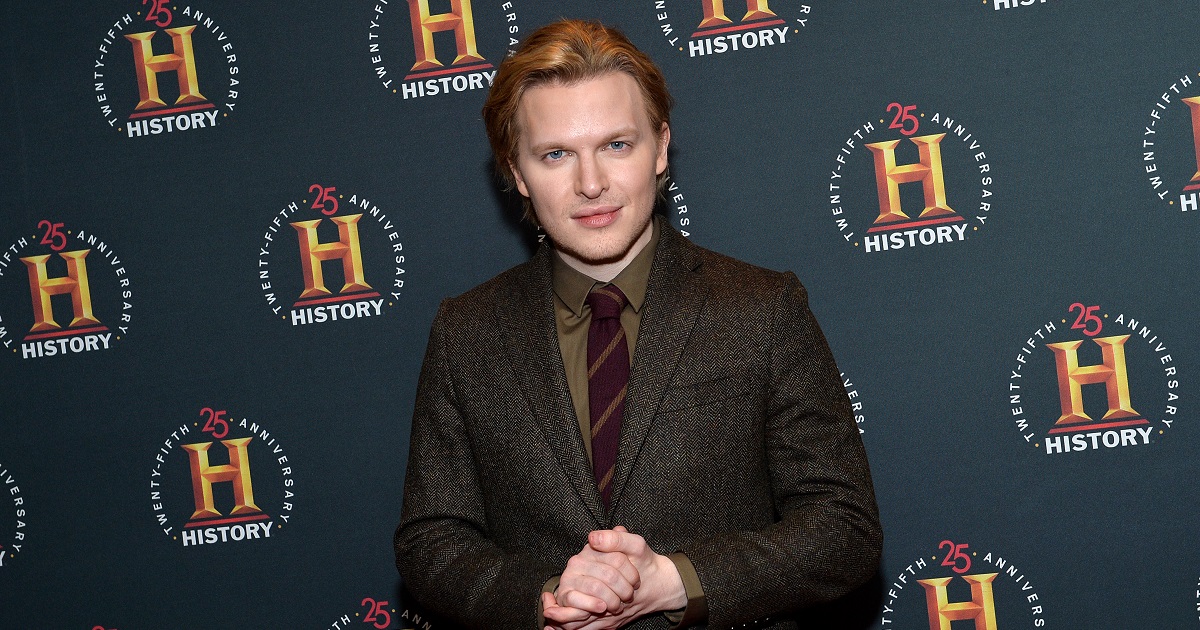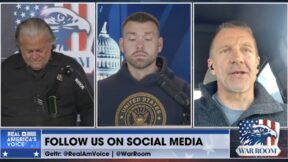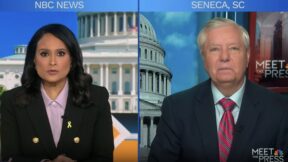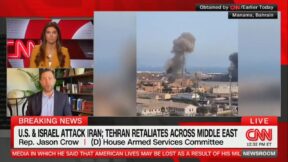Ronan Farrow Still Hasn’t Answered These 10 Serious Questions Raised About His Journalism

Noam Galai/Getty Images
A week ago today, former long-time Today show host Matt Lauer finally published, here on Mediaite, his in-depth investigation into Ronan Farrow’s 2019 book that accused him of raping a former NBC producer with whom he had a multi-month extramarital affair. In a rational world, coming on the heels of a damaging analysis of Farrow’s work in the book from The New York Times, this would have provoked a flood of news media stories reevaluating Farrow’s journalism and whether he really deserves the almost unprecedented power he has been given.
Instead, as I predicted at the time, the reaction of the media resembles a trickling stream of muted — though significant — scrutiny, rather than a mighty river of real accountability. The response of Farrow and his many sycophants in the elite media club been both easily foreseen and incredibly instructive.
Farrow’s supporters, apparently unable to find any obvious flaws in Lauer’s reporting, immediately resorted to the last bastion of a cult when faced with information which might make them question their core beliefs, dismissing the whole controversy by saying that no one wants to hear from Matt Lauer during a pandemic. As for Farrow himself, he followed that lead by simply claiming, without a shred of actual rebuttal, that Lauer was wrong and that his book was fact-checked with Lauer himself.
Having been at the center of this story since the book came out, I found it fascinating that Farrow not only failed to respond substantively, but also opened the door to his “off the record” conversation he had with Lauer just before the publication of the book. Based on my extensive conversations with both Lauer and another witness to that meeting, there are some serious questions about Farrow’s possible role in how Lauer’s accuser, Brooke Nevils, concluded five years after the alleged episode that she had been raped.
After Farrow chose to allow Lauer’s accusations of journalistic malpractice (specifically that four key people referenced by Farrow were not even contacted by him, and tell very different stories than were in the book) to go factually unchallenged, there was a modicum of media reaction to this stunning development. There was even some new reporting which cast even further doubt on Farrow’s accuracy and ethics in other areas.
Billy Bush, a former Today show employee (who, interestingly, was out at the same bar with Lauer and Nevils the night of the episode at the 2014 Olympics), mocked Farrow’s lack of response on his entertainment news TV show, Extra. Bush even ended his scathing commentary by asking whether Farrow will really be allowed to get away with this, saying, “That’s how it’s gonna go?!”
There were also two new negative stories involving Farrow which did come out in the days after Lauer’s revelations. One in the Washington Post dealt with Farrow being forced to admit he “misspoke” regarding some key elements in his Harvey Weinstein reporting, while the other dealt with Farrow, in a jaw-dropping act of hypocrisy given his constant complaints about NBC supposedly spiking his now famous Weinstein reporting, trying to kill a New York Magazine story on his father Woody Allen’s wife (this scandalous behavior is coming out on the heels of Farrow killing the book deal for Allen’s recent memoir, which had been scheduled for publication by Hachette, the company that also distributes Farrow’s work).
At this point, it is beyond obvious that Farrow and Hachette (which bragged at the publication of Farrow’s latest book that “The explosive and important new reporting in Catch and Kill has been meticulously vetted and fact checked”) need to at least answer some very important questions. Here are a few which I posed to Farrow after the book came out, but to which he has still never responded.
- At what point in your discussions with Nevils did she first indicate that according to you, “in hindsight,” that Lauer committed an act of violence against her?
- Since there is no evidence Nevils described the episode in that way before speaking to you, isn’t it fair to suspect your interaction with the former NBC producer could have influenced her description of what happened with Lauer, and could have caused her, over five years later, to perceive the episode differently than it actually happened?
- You refer in your book to emails and text messages between Lauer and Nevils on the night in question. Have you seen them? If they exist, why are they not in your book? If you didn’t see them, why do you presume that they happened exactly as Nevils told you?
- Why are almost all of your sources on Lauer, like you, are former NBC employees, and therefore people with a possible axe to grind as well as potentially invested in a narrative which helps rationalize their own possible failures with the network? Why did you apparently not seek to speak to people close to Lauer still at NBC whose stories may support a different storyline?
Now, based on Lauer’s analysis, here are six more that someone in the news media, assuming there is anyone around who is not afraid of Farrow or his rabid fan base, really should be requiring him to answer before this subject is allowed to die.
- Did you fact-check the story of the Peacock Productions staffer you reference on page 387 of your book? She is the one you claim was told, by Brooke Nevils, about the seriousness of the allegation against Lauer. Her version of the story is very different. (Both Lauer and Mediaite fact checked and found you never spoke to her.)
- Did you fact-check the NBC producer you also reference on page 387. He is the one you say Brooke Nevils ran crying to see after an alleged assault? He says it never happened. (Lauer, Mediaite, and The New York Times all fact-checked this story, and found you did not. Your own fact-checker, Sean Lavery, has admitted there was no fact checking of this person.)
- Did you ever speak to the former boyfriend of Nevils who she claimed was vulnerable to Lauer’s professional power, in a way that caused her to continue in her affair with Lauer? He contradicts that claim, and actually lived with Brooke at the time of the Sochi Olympics, where she alleged an assault took place. (Lauer and Mediaite both fact-checked this person and found that you did not.)
- Did you reach out to and fact-check Lauer’s assistant of twenty-years whom you reference in a story on page 375? You had two years to allow her to confirm or deny a story that put her in the middle of a dramatic claim. She says your story is false. (Lauer and Mediaite both fact checked her and found you did not even reach out to her.)
- Were you transparent about Brooke Nevils’ interest in potentially selling her story in a book of her own? Did you two have any sort of cross-promotional arrangement? If not, is there any reason why she may have thought that you did?
- Seven months ago, you and Rachel Maddow dramatically announced on MSNBC that NBC was allowing anyone who might feel hindered from discussing their sexual abuse by having signed a non-disclosure agreement to speak freely to the press. There is not one known example of that actually happening. Is it fair to presume that this is because no such accusers exist, at least with regard to Lauer? If you had known that at the time, would that have changed what you reported?
Knowing well how this media game is played, and how deeply invested most of the elite news media is in protecting Farrow, I have no expectation that any of these critical questions will ever be asked of, and answered by, him. However, I am certain that if journalism still meant anything to those who pretend to be engaged in this profession, Farrow would either provide legitimate explanations for all of this, or be immediately stripped of his crown as the King of #MeToo reporters.
This is an opinion piece. The views expressed in this article are those of just the author.
New: The Mediaite One-Sheet "Newsletter of Newsletters"
Your daily summary and analysis of what the many, many media newsletters are saying and reporting. Subscribe now!






Comments
↓ Scroll down for comments ↓